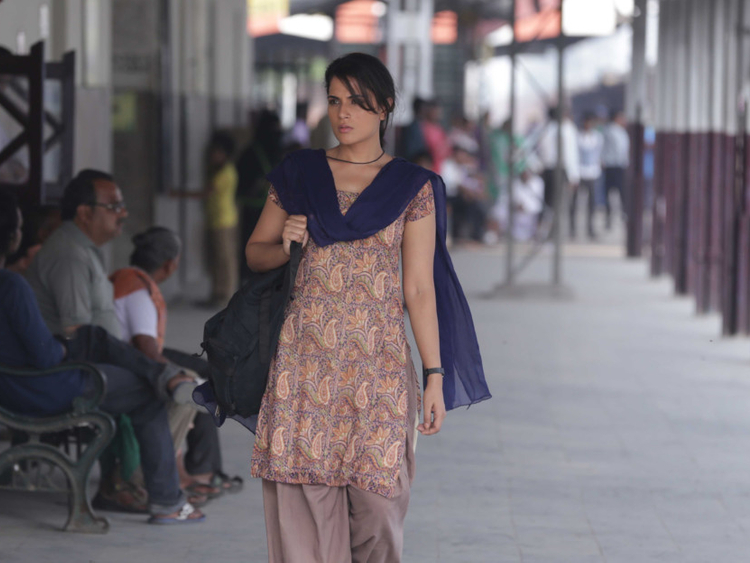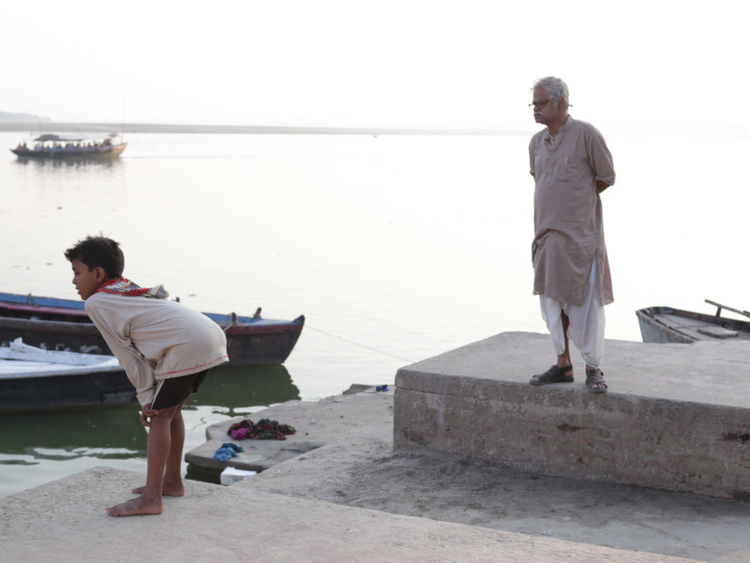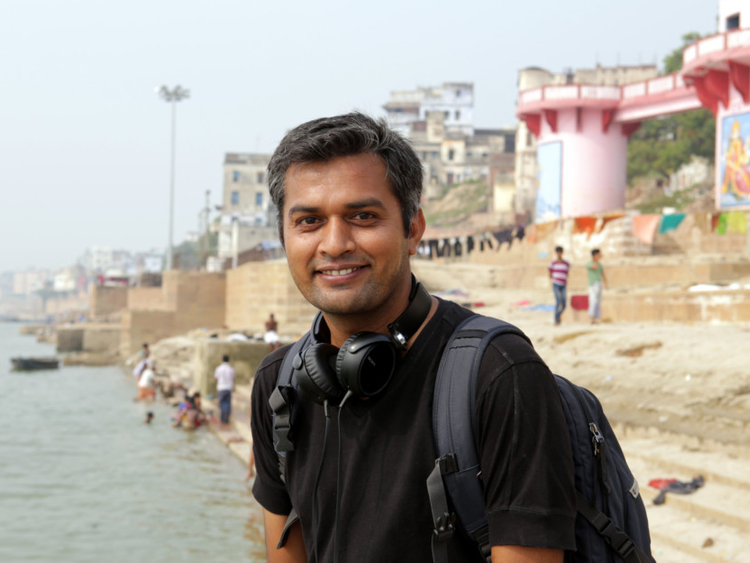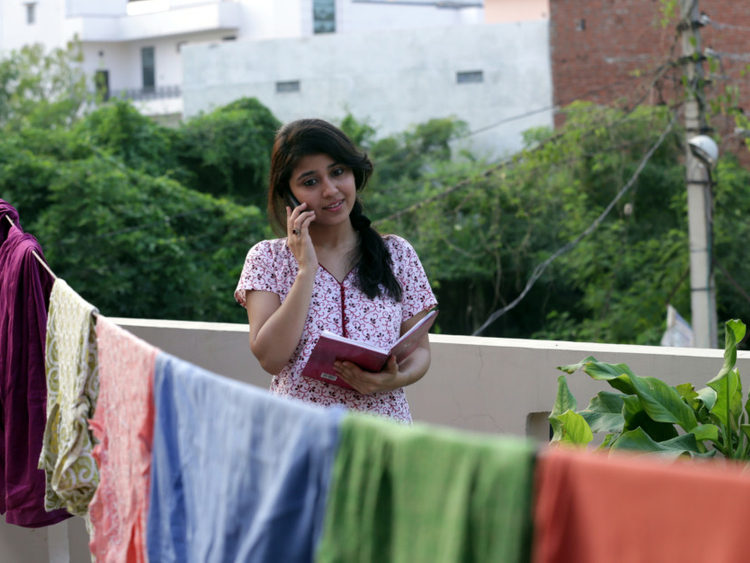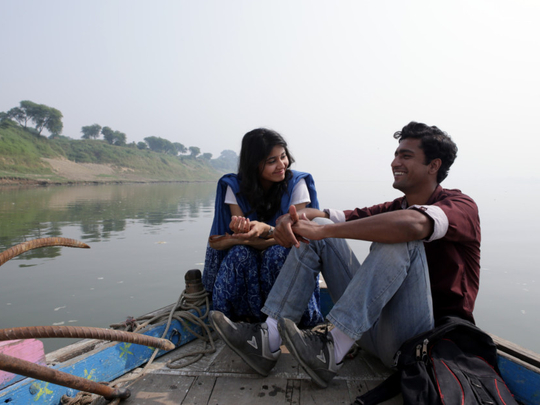
If you die in Varanasi in north India, some Hindus believe, you can skip the cycle of reincarnation, and directly attain salvation. Thousands of Hindus therefore make a pilgrimage there, one of the holiest cities in Hinduism, some to live out their final days and some brought by their relatives to be cremated.
This rather gloomy premise is the setting for debutant director Neeraj Ghaywan’s sombrely titled Masaan, or crematorium in Hindi. But the film, out this weekend in the UAE, is actually a celebration of life, says Ghaywan.
“When people die, it’s always associated with misery or loss or longing. It’s always a negative emotion,” he says. “But you know, that suffering heals you. Everything in life becomes clearer and a kind of coming-of-age happens…a catharsis.”
Masaan revolves around two main stories. The first is about a young woman haunted by a sex scandal who, along with her simple father, are blackmailed by a police officer who’s threatening to release an incriminating video. The second is about two young lovers whose relationship is tested because they both belong to different castes. The river Ganga, on whose banks the Varanasi is built, acts as a connective thread as these character’s lives come crashing into each other. Ghaywan says he first concocted the story for Masaan in his head six years ago after he heard a friend talk about the ghats, or embankments, in Varanasi where funeral pyres burn non-stop.
“I was intrigued by this person whose job was to torch dead bodies day in and day out. What would his world view be? How does he perceive the idea of life and death? That intrigued me,” he says.
“And I also wanted it to be a commentary on the society we live in. The rest of the world is just waking up to India’s potential and power in the global arena. And yet at the same time we have places like this where we are still bound by the shackles of traditions and customs. It’s an interesting paradox.”
The story stalled for a few years as Ghaywan quit his marketing job and dived into filmmaking, assisting acclaimed director Anurag Kashyap on his crime epic Gangs of Wasseypur. It was while working on the two-part film that he met Varun Grover, who would write the screenplay for him.
“I had no film school background. I had the story but didn’t know how to build a screenplay. That’s how Varun came into the picture,” recalls Ghaywan. “Varun has lived a large part of his life in Varanasi, we both have engineering backgrounds, came from similar middle class families, had the same world view and had a similar take on everything. It was perfect.”
The two travelled around Varanasi for a month and a half, then came back to Mumbai and wrote Masaan.
They already knew they wanted Richa Chadda to play Devi, the small-town girl with big dreams whose aspirations are threatened after she’s caught in a hotel room with a man.
Chadda, who’s won acclaim and awards for her role in the two Gangs of Wasseypur films, says the film couldn’t have come at a better time.
“People are ready for these kind of films and that’s a good thing,” she says. “It’s a very strong film and I really want it to do well so people can stop saying such projects are not viable.”
Sanjay Mishra, who plays Chadda’s father in the film, agrees.
“Audiences are hungry for fresh content,” says the protagonist of Ankho Dekhi, the critically acclaimed 2014 film that won many awards.
In the 20 years he’s spent working across multiple film industries in India, Mishra says he’s often stereotyped.
“I often get offered a villain, a father or a comedian and that was it. There was always work, yes, but very few roles that really challenged me,” he says. “Now with films like Ankhon Dekhi and Masaan, it’s a good time for actors like me. It’s a good time for Hindi cinema in general.”
In Masaan, Mishra’s Vidyadhar Pathak is a retired Sanskrit teacher who’s settled to a life selling things on the ghats in Varanasi. But when a policeman starts to blackmail him with a potentially embarrassing video involving his daughter, his simple existence is thrown into chaos.
“I was born in Varanasi so this film is special to me,” says Mishra who will next be seen in the Shah Rukh Khan-Kajol film Dilwale to be released in December. “I did this film as a tribute to my father who loved the ghats.
“I want people to come with an open mind to see the film and get lost in the characters.”
Shweta Tripathi, who plays Shaalu Gupta, a strong-headed girl who falls in love with a lower caste man, says audiences will be deeply affected by the film.
“I want my films to be an experience. That’s the kind of cinema I believe in. It could be pleasant experience or something that is thought-provoking. And Masaan definitely has those elements,” says the 31-year-old who made her debut in the Disney series Kya Mast Hai Life.
Tripathi, who comes from the so-called higher caste Brahmin family, says issues such as the caste system and all forms of discrimination are still rife and needs to be discussed.
“I played a Muslim girl called Zenia Khan in the Disney series and that had a lot of people ask me why I did it. I recently did an ad about voting where I play a parlour girl and pedicurist. A lot of people had issues with that too. And these are all educated people.”
Masaan is not a feminist film, but one with very strong female characters, she says.
“Richa’s character Devi is a rebel. She knows what she wants and she’s curious about the world and is willing to explore her desires. And there’s nothing wrong with that. Shaalu, my character, is the anchor in her relationship with Deepak, she’s the more mature one. She respects her parents but if she thinks they are unreasonable, she’s not afraid to say it.”
Tripathi was assisting British director Michael Winterbottom when he filmed his 2011 film Trishna across India.
“Anurag [Kashyap] was line-producing [Trishna] in India and that’s how I met Neeraj, who assisted Anurag in Gangs Of Wasseypur. I then worked with Neeraj in a short film he directed called Shor.”
Kashyap is also the producer of Masaan.
Tripathi’s character, like Chadda’s, was written with her in mind.
“When boys in smaller towns think of the ultimate beauty, it’s never this hot, sexy model. It’s always this girl that’s so beautiful and pure. I didn’t want to cast someone that was very stunning. She had this angelic face, this innocence,” says director Ghaywan.
Masaan diverts from typical Bollywood fare in scope and presentation and joins a small but growing wave of socially conscious films in India that are rooted in reality.
But it was never intended as a Western audience-bating, festival-going fare, says Ghaywan.
“The films that we like to send for international competitions always have social-political themes. That’s how we make our world appear to the West. But Masaan is not a political commentary,” he says. “It has political tones: we’re talking about the caste system and sexual morality. But they are at a very human level. It’s a really human story.”
Yet Masaan has already won acclaim in the West. At the Cannes Film Festival in May, the film was screened under the official Un Certain Regard selection, where it was given a standing ovation. It then went on to win the ‘Promising Future’ award and the critics award from the International Federation of Film Critics (FIPRESCI).
“That standing ovation has been the best reaction so far. To receive that kind of reception for your first film and that too in Cannes, is just unbelievable,” says Ghaywan, who says he’s hoping the film will be received positively in India.
“People who’ve seen it are connecting with it at various levels. When a Western audience who are oblivious to our culture or milieu can connect with the stories, I’m hoping Indians will accept it with open arms.”
Don’t miss it
Masaan releases in the UAE on July 23.



